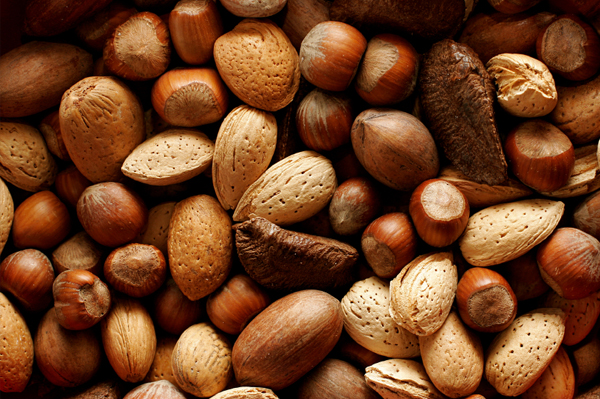Are you a nuts about nuts? May be you should be. #ClinicSpeak #MSBlog #MSResearch
"The recent activity on unrelated comments abouts nuts has forced my hand to discuss the epidemiological study below that shows that nuts (tree nut and peanut) consumption is associated with a lower mortality rate from neurodegenerative and cardiovascular diseases in people living in the Netherlands. The problem with this study is it cause or effect? Is nut consumption itself having an impact on survival or does it simply indicate that people who eat nuts are different to non-nut eaters? The former is causation the latter association. I can think of at least ten reasons why nut eaters may be different to non-nut eaters and some of these factors may reduce mortality. Although the researchers used statistics to control for potential confounders, or factors, that could explain the association there could be unidentified confounders that haven't been taken into account in the analysis. Embedded in this study was a meta-analysis of other studies published on nut consumption that shows similar results. The results therefore indicate that nut consumption itself may reduce mortality. The only way to prove this is to do an interventional study and randomise people to a high-nut diet vs a low-nut diet and to follow them up for years, or decades, to assess the impact on survival. The latter interventional study will never happen as it is simply not feasible to do.""Based on this study's results should you alter your diet and eat more than 10g of nuts per day? Nutritionists will tell you that nuts are a very good source of calories and proteins, and are classified as one of the so called superfoods. A superfood is a nutrient-rich food considered to be especially beneficial for health and well-being. Nuts are part of the Mediterranean diet, which I subscribe to, and the paleo or paleolithic diet (hunter-gatherer diet). The paleo diet is gaining a lot of traction in the metabolic field and has an emerging science base to support it. Therefore, on balance there is little to be lost by eating nuts. However, if you do start eating nuts please make sure it is not to excess and you do so within your daily calorie allowance. Nuts are highly calorific. From a personal perspective, I probably eat nuts 5 days of the week and more than 10g at a time. I do this simply because I love nuts, in particular Macadamias. It is also important to eat sustainable nuts; for example some parts of the Brazil nut industry are not sustainable at present. I would also suggest eating a variety of nuts and if you do eat salted nuts make sure you don't take in too much salt."
"We have shied away from discussing diet on this blog. But recently we have had a nutritionist working in our group. Her name is Nuria Batlle and she has developed an interest in MS. Nuria has just completed an audit of our MSers to assess constipation and the contribution of diet to their problems. I have had the opportunity of scanning some of the food diaries she has collected and was truly shocked to see how poor the average diet is of many of the MSers attending our clinic at Barts Health. If we want to promote a healthy lifestyle and a holistic approach to MS we will need to address this aspect of health in the future. The following is a simple guide Nuria has put together to help with the dietary management of constipation. If you are interested we may get Nuria to do a series of posts on diet. I am sure many of you have dietary advice to give each other. However, the evidence-base in relation to the dietary management of MS is rather poor so it is difficult to give any firm recommendations. To address this I am hoping the funding agencies create a specific funding call to address this lack of knowledge."
Background: Nut intake has been associated with lower mortality, but few studies have investigated causes of death other than cardiovascular disease, and dose-response relationships remain unclear.
Methods: We investigated the relationship of nut (tree nut, peanut) and peanut butter intake with overall and cause-specific mortality. In the Netherlands Cohort Study, 120 852 men and women aged 55–69 years provided information on dietary and lifestyle habits in 1986. Mortality follow-up until 1996 consisted of linkage to Statistics Netherlands. Multivariate case-cohort analyses were based on 8823 deaths and 3202 subcohort members with complete data on nuts and potential confounders. We also conducted meta-analyses of our results with those published from other cohort studies.
Results: Total nut intake was related to lower overall and cause-specific mortality (cancer, diabetes, cardiovascular, respiratory, neurodegenerative diseases, other causes) in men and women. When comparing those consuming 0.1−<5, 5−<10 and 10+ g nuts/day with non-consumers, multivariable hazard ratios for total mortality were 0.88, 0.74 and 0.77 [95% confidence interval (CI), 0.66–0.89], respectively (Ptrend = 0.003). Cause-specific hazard ratios comparing 10+ vs 0 g/day varied from 0.56 for neurodegenerative to 0.83 for cardiovascular disease mortality. Restricted cubic splines showed nonlinear dose-response relationships with mortality. Peanuts and tree nuts were inversely related to mortality, whereas peanut butter was not. In meta-analyses, summary hazard ratios for highest vs lowest nut consumption were 0.85 for cancer, and 0.71 for respiratory mortality.
Conclusions: Nut intake was related to lower overall and cause-specific mortality, with evidence for nonlinear dose-response relationships. Peanut butter was not related to mortality.
CoI: none, I don't do any work for the nut industry.
